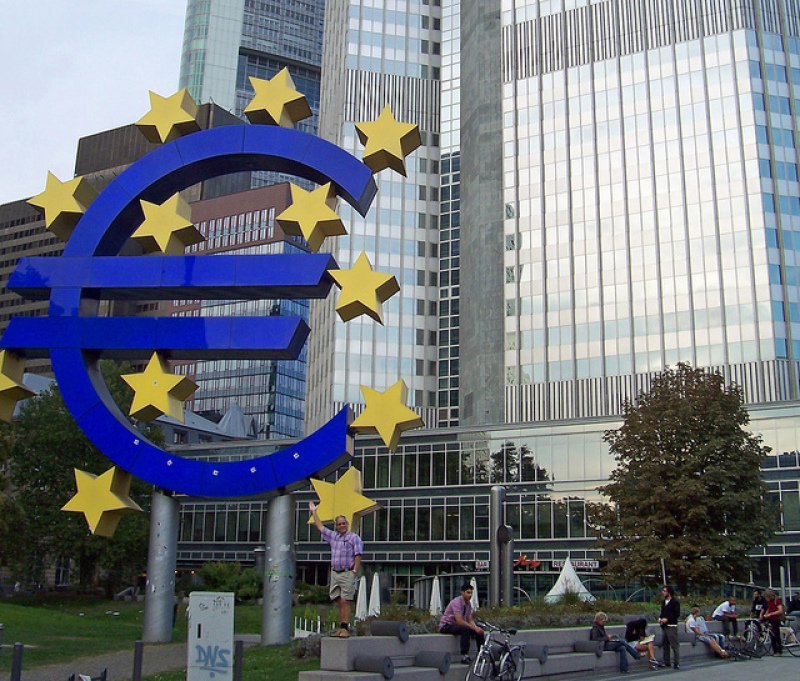

The European Central Bank will meet on Thursday to discuss possible strategies to stimulate the economy.
The European Central Bank may implement the buying of government bonds in order to stimulate the European economy, which is a process called quantitative easing.
Recently, the euro has fallen in comparison to the US dollar as a result of a sliding economy. Experts attribute the fall in the economy to the structural flaws of the European Central Bank, which includes a large amount of European countries. One instance is that strong economies, such as Germany, use the same currency as Greece, which owes large amounts of debts.
Many expect the 25 member executive board of the European Central Bank to announce the decision to purchase bonds in large amounts. The ECB will most likely buy 50 billion euros worth of bonds every month for at least 12 months. These purchases will create opportunities for the private sector through ways such as financing businesses or buying assets, and theoretically stimulate the economy.
Currently the European economy is in danger of a long-term deflation. The unemployment rate is at 11.5 percent and in order to avoid this deflation the majority of the ECB is in favor of pumping billions of euro into the economy.
This strategy has been used before by several large economies during economic struggles. The United States' Federal Reserve bought billions of government bonds during the economic downturn from 2008 to 2014. These efforts had positive effects on the U.S. economy. Theoretically, the same practice should have a similar effect on the European economy. However, there is no guarantee that the private sector will use the money, which would be detrimental to the economy. Further, the U.S. and European economies are structurally different from each other, therefore the quantitative easing in Europe may not have the same results as it did in the U.S.
More stable economies in the euro zone, such as Germany's, do not wish to adapt this idea. They instead want to work to reduce the debt directly. The quantitative easing, they fear, may lead to inflation and wasteful government spending.


















